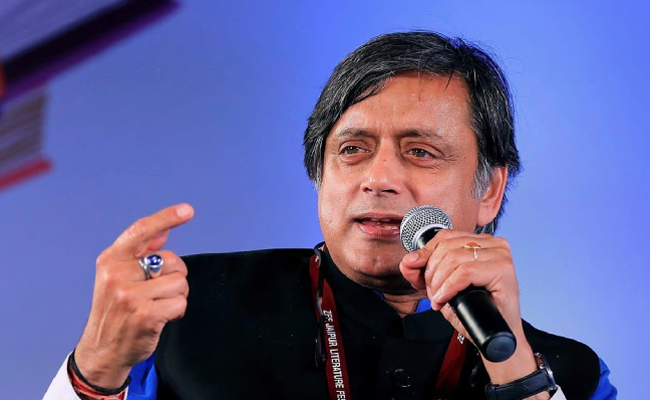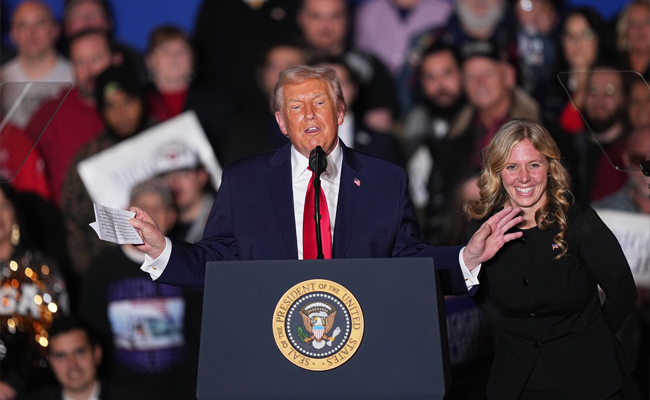Bengaluru: Dalit leader and Gujarat MLA Jignesh Mevani said that the main agenda of dalits, tribals and women should be to defeat Modi and BJP in the forthcoming Lok Sabha election, for which all dalit organizations should come together.
Speaking at a meeting of dalit activists of South India at the Central College Senate Hall here on Thursday, he said that “Our eyes are blindfolded. We need to remove that and come together to defeat the communal and fascist forces. I have been telling this repeatedly. I will tell the same thing till the communal are defeated”, he said.
“Every day, dalits, oppressed classes, progressive people were subjected to exploitation and harassment. What was the use of keeping the ideologies of Ambedkar, Marx and Lohia. We have been fighting against the communal forces and other evils with separate flags and are being killed by the communal forces. Gauri Lankesh, Kalburgi, Dabholkar and others were killed. Umar Khalid suffered gun attack. I have been facing threats. We have accepted that fascism is the biggest threat in the society. Even then, we are not coming together under one banner to fight against the fascism. Why? Dalit leaders are being arrested. The people who have been fighting for the dalits and tribals are branded as urban naxals. But the dalit organizations have been observing silence. People clap when I speak and click selfies. When it comes to protest and fight, everybody will keep silent”, he said.
Bhim Army leader Chandrashekhar Azad was arrested in Uttar Pradesh a year ago, but none of the dalit organizations protested it. When the dalits were attacked in particular states, the dalit organizations stage protests there and keep quiet. But when such incidents happened in other states, the dalit organization would not it seriously due to which dalit movement has seen a set-back. In Karnataka, all dalit organizations should forget their differences and come together to build a Nava Bharat, he appealed.
Prime Minister Narendra Modi is not working. So, only dalit movement could highlight his mistakes. At this moment, in order to mislead the dalit movement, false cases are being booked against the dalit leaders and making false propaganda that the dalits have been supporting the naxals who are planning to kill him, he said.
Which naxals have sent lakhs of dalits after Unao incident? Which Maoists have sent lakhs of dalits who gathered after Rohith Vemula’s death? Who sent the dalits against SC/ST Atrocity Act? All have come to the movement voluntarily. But the central government has been attacking those who raise voice against it. So, the main agenda of the dalits should be defeating RSS and BJP, he appealed.
Former Advocate General Prof Ravivarma Kumar said that if there were no dalit judges in the judiciary, the dalits would not have justice. So, dalits should be appointed for the vacant positions in the judiciary. “If we want reservation in judiciary, then Constitution should be amended. If others are in that position, they would not allow the amendment. So, first dalit judges should be appointed and bring in amendment later”, he said.
Resolutions
- To strengthen the Atrocity Act
- Withdraw false cases booked against dalit activists
- Releasing Chandrashekar Azad of Jai Bhim Army of Uttar Pradesh
- Implementing reservation in promotion for dalit employees
- Reservation for dalits in private sector
Let the Truth be known. If you read VB and like VB, please be a VB Supporter and Help us deliver the Truth to one and all.
New Delhi (PTI): Congress leader Shashi Tharoor on Saturday, while lauding the win of the UDF in Kerala local bodies elections, also congratulated the BJP for its historic performance in his Thiruvananthapuram constituency, calling it the "beauty of democracy".
In a post on X, he said the people's verdict must be respected, whether for the UDF overall or for the BJP in his constituency.
"What a day of amazing results in the Kerala local self-government elections! The mandate is clear, and the democratic spirit of the state shines through.
"A huge congratulations to @UDFKerala for a truly impressive win across various local bodies! This is a massive endorsement and a powerful signal ahead of the state legislative elections. Hard work, a strong message and anti-incumbency have all clearly paid off to achieve a much better result than in 2020," Tharoor said.
He said he also acknowledges the historic performance of the BJP in Thiruvananthapuram, and "offer humble congratulations on their significant victory in the city corporation - a strong showing that marks a notable shift in the capital's political landscape."
Tharoor said he campaigned for a change from 45 years of the LDF "misrule", but the voters have ultimately rewarded another party that also sought a clear change in governance.
"That is the beauty of democracy. The people's verdict must be respected, whether for the UDF overall or for the BJP in my constituency.
"We will continue to work for the betterment of Kerala, advocating for the people's needs and upholding the principles of good governance. Onwards and upwards!" Tharoor, who is the MP from Thiruvananthapuram, said.
The lotus bloomed in the state capital as the BJP-led NDA achieved a resounding win in the polls for the Thiruvananthapuram Corporation, snatching it from the CPI(M)-led LDF and marking an end to 45 years of continuous Left rule in the local body.
The win in the Thiruvananthapuram Corporation will act as a boost for the BJP in the 2026 Assembly polls, especially in the state capital.
Of the 101 wards in the Thiruvananthapuram Corporation, the BJP won 50, LDF 29, UDF 19 and two wards were won by independent candidates.
The BJP is one seat short of a decisive majority in the corporation.
Besides this, the NDA retained the Palakkad municipality after a close battle with the Congress-led UDF and wrested the Thrippunithura Municipality from the grand old party.
In Thrissur, from where Suresh Gopi won in the Lok Sabha polls last year, the BJP won 18 out of the 46 wards in Kodungallur Municipality, eight in Thrissur Corporation, two each in Guruvayoor and Vadakkancherry municipalities, seven in Kunnamkulam Municipality, six in Irinjalakuda Municipality and one in Chalakudy Municipality.





